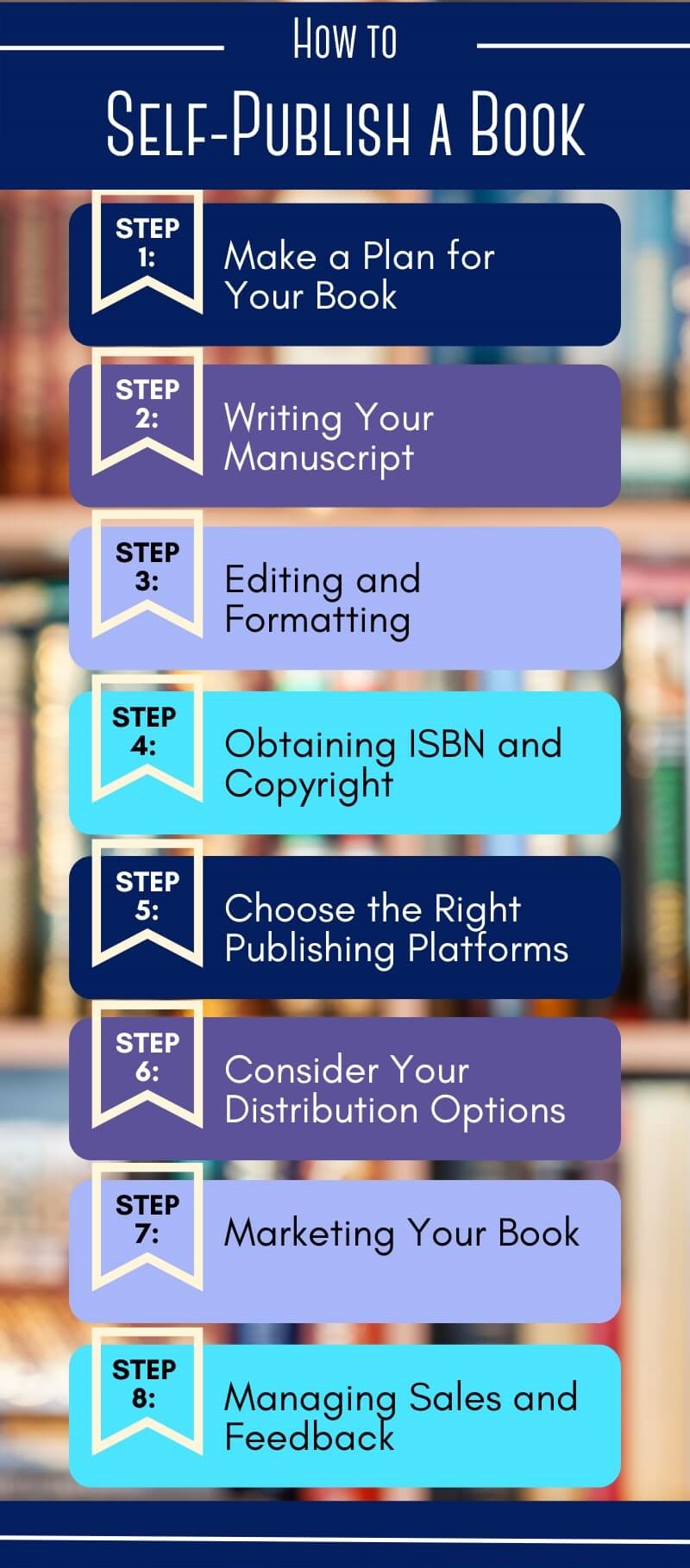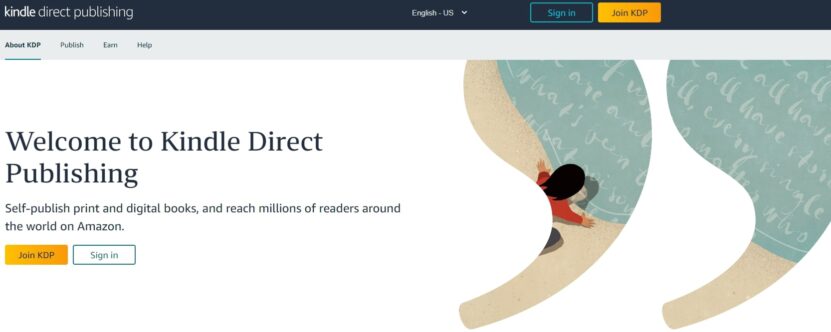Self-publishing presents writers with the rewarding opportunity to steer their own creative course from start to finish. Rather than relying on outside guidance, this approach locations full control within the author’s hands over every aspect of sharing their story with readers. From the early drafts taking shape to the final product released, one shapes their work as they envisioned – an empowering experience.
While going it alone requires dedication, this page offers practical tips to help smooth the path. For any with a tale in their heart yearning to be told, following it through by your own determination promises the fulfillment of seeing your personal vision brought to light.

Make a Plan for Your Book
Set Clear Objectives
Any publishing endeavor will be well served by initial planning. First, evaluate your goals – do you wish to educate on a topic, spin a gripping yarn, or establish expertise? With objective in mind, your efforts have direction. Revisiting your reasons sparks motivation when obstacles appear. Clearly defining your aims also allows smooth collaboration – editors and artists can better support the vision explained outright.
Moreover, with a destination in focus, each challenge overcome brings you nigh to readers awaiting your gift. In all, taking time at the start to chart your course guides a journey ripe with purpose and reward.
Know Your Audience
It is crucial to identify who will read your book. Conduct market research to gather information about your potential readers’ age, preferences, and habits.
Writing Your Manuscript

Establish a Writing Schedule
Long endeavors require a commitment to their course. Establishing regular hours to dedicate quill to page provides the steady foundation writing demands. Doable daily duties prevent procrastination, allowing ideas to flow continuously.
Consistency likewise forestalls that insidious thief of creativity – the blank page. As motivation navigates life’s storms, ritual keeps the pen in hand and mind in the story.
Colleagues know well that any longship reaches port only through keeping time’s tides. So too the word-wright – appointment with adventure calls each morning. Answering steadfast carves plain what once seemed beyond reach’s shore. Stay true to your craft, and words will follow where the heart leads.
Gather Constructive Feedback
No person’s perspective stands alone, so seek the gift of additional eyes on your work. Share drafts with trusted peers for their thoughtful reviews. Or join writing groups to exchange considered feedback, expanding your view.
This weighs fresh angles that can remedy weak scenes or verify strengths. Such discourse also guides your understanding of what draws – or detaches – readers today. Welcome all insight that may hone your telling into a tool to engage more hearts.
Editing and Formatting

Hire a Professional Editor
No journey finds its fullness alone. Each step we take, each insight kindled, owes debts to those who journey too. Be the critics near whose voices share fresh winds, or editors’ hands refining vision’s shape – their gifts ennoble all they touch. So too with strangers met along exchange’s path, bearing wisdom oft unknown. Together, diverse minds lend depth no lone mind could.
Pay Attention to Formatting
Taking care with formatting is crucial to sharing your work effectively. Whether you learn layout tools yourself or enlist an expert, well-organized text makes your book accessible and professional.
Clearly presented content ensures readers can focus on your message instead of puzzling over needless obstacles. It also prepares your manuscript for different publishing platforms, smoothing the distribution process. A neatly formatted volume signals you value others enough to communicate thoughtfully.
Obtaining ISBN and Copyright
Secure an ISBN
An International Standard Book Number (ISBN) is crucial for book distribution and sales tracking. Obtain an ISBN for each version of your book to ensure it is easily identifiable and trackable in the marketplace. This number is essential for managing inventory through distributors and retailers and is required for listing your book in most online stores.
It also lends an air of professionalism to your publication, enhancing its credibility among booksellers and readers.
Register Your Copyright
Protect your work by registering your copyright. This legal protection helps prevent unauthorized use and provides you the right to claim damages should someone copy your work without permission. Copyright registration documents your ownership publicly, deterring plagiarism and providing legal evidence for copyright ownership.
This step is particularly important as your book enters wider circulation and reaches more readers.
Choose the Right Publishing Platforms

Select the right platform for publishing your book by comparing their features, audience reach, and royalty structures. Platforms like Amazon Kindle Direct Publishing, Apple Books, and others offer various benefits and limitations. Choose one that aligns with your distribution goals and audience.
Consider factors such as the ease of use of the platform, the level of control it offers over pricing and promotions, and the specifics of its payment and royalty structure.
Consider Your Distribution Options
You must decide between exclusive distribution, which can limit your book to a single platform, or wide distribution, which makes your book available across multiple platforms. Each option has its benefits and drawbacks depending on your market reach and financial goals.
Exclusive arrangements can offer higher royalties and promotional advantages, while non-exclusive distribution increases your book’s potential reach by making it available through multiple sales channels.
Marketing Your Book
Develop a Strong Online Presence
An effective online presence is essential. Create a professional author website and maintain active social media profiles to connect with readers, share updates, and promote your book. An engaging online presence can help build a community around your work. It serves as a platform for launching marketing campaigns, sharing content related to your book, and interacting directly with fans and potential buyers.
Implement Direct Marketing Tactics
Utilize direct marketing strategies such as email newsletters and targeted online advertising. Collecting email addresses for a newsletter allows you to maintain ongoing communication with your readers, while targeted ads can help attract new readers.
These strategies allow for personalized marketing approaches that can increase engagement and conversion rates. They also provide valuable data about your audience’s preferences and behaviors, which can inform future marketing efforts.
Managing Sales and Feedback

Set the Right Price
Price your book competitively by considering factors such as production costs, the target audience’s purchasing power, and the pricing of similar books. A well-considered pricing strategy can influence your book’s sales and overall success.
It’s important to strike a balance between making your book affordable for a wide audience and ensuring that you receive fair compensation for your effort and creativity.
Analyze Sales Data
Regularly review your sales data and reader feedback. This information is critical for understanding how your book resonates with its audience and can guide your future marketing and writing efforts.
Monitoring these metrics allows you to identify trends, adapt your marketing strategy, and make informed decisions about future projects. It also helps in pinpointing the most effective sales channels and marketing messages.
All in All
Self-publishing is a rewarding, a bit complex, process that offers significant control over your book’s destiny. By carefully managing each step of the process, from writing to marketing and beyond, you can greatly increase your chances of success in the competitive world of book publishing.
I’m Anastasia, and I’ve just wrapped up my postgraduate studies in literature. I absolutely love writing books. It’s my way of weaving new worlds and breathing life into the characters that keep me up at night. Literature isn’t just a field of study for me; it’s a canvas where I paint with words. Through my writing, I hope to connect with others who share my love for storytelling and to contribute something meaningful to the literary world.
Related Posts:
- How To Start Branding Yourself As a Writer -…
- 16 Ways to Describe Emotions Without Making Your…
- Overcoming Writer’s Block - 10 Practical Tips for Beginners
- How to Create a Marketing Plan for Your First Book
- 7 Best Ways to Find the Right Editor for Your Book -…
- Which Book Formats to Publish? eBooks or Print








